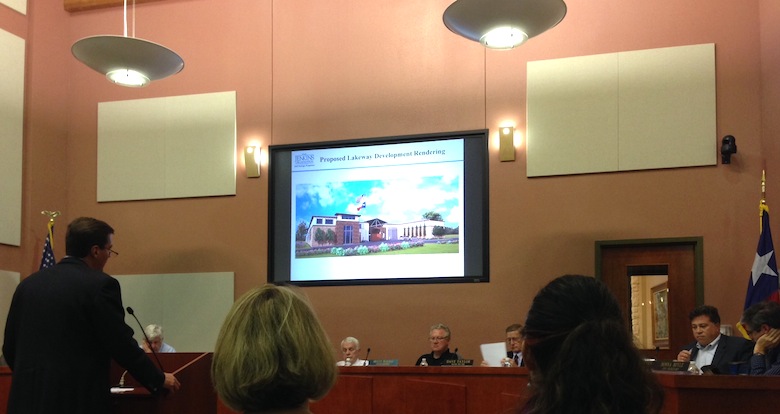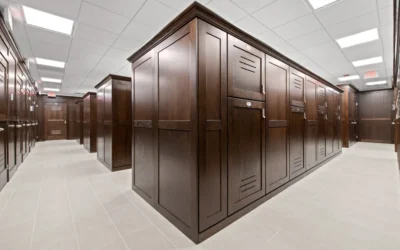One of the biggest hurdles for any self-storage developer is rezoning property for a facility. A developer must convince a municipality’s zoning panel and city council that a project is worth changing city regulations about how a piece of land can be used.
The process could take months and cost tens of thousands of dollars, and one “yay” or “nay” could be the difference between whether a project lives or dies. But to many developers, certain sites are worth the risk.
The good news is that a self-storage developer can improve the odds of success by doing extensive research and getting the support of as many community members as possible.
The process
To succeed in a zoning dispute, it’s essential to understand the rezoning process in that particular municipality.
The Jenkins Organization has been in business since 1989 and has been building self-storage facilities for almost 20 years. Recently, the Houston-based company was seeking to build an $8 million, 700-unit storage facility (see artist’s rendering above) in the upscale residential community of Lakeway, TX, west of Austin. The Jenkins Organization lost the battle in Lakeway but learned plenty in the process.
“The first step is to meet with the planning director,” said Ricky Jenkins, president of The Jenkins Organization. The planning director can inform a developer about the process and help with the zoning application.
Alternatively, a developer can meet first with a zoning consultant. The consultant can explain the city’s rules and regulations, give the lay of the land and assist throughout the process.
“We chose to do it ourselves [in Lakeway] because we thought our chances of success were high,” Jenkins said. The developer had the support of the property owner and surrounding neighbors.
While the site plans and project renderings are being drawn up, the rest of the team should be preparing to make the case for the project and anticipate any questions.
The first presentation will be before the zoning commission; anyone heavily involved in the project should attend to make the presentation and answer questions.
Commissioners then will hold a public hearing, usually a few weeks later, to gather input from community members before making a recommendation on whether to approve the project. Then, the city council will weigh in on that recommendation.
Council members also will hear a presentation and hold a public hearing. They’ll consider the zoning commission’s recommendation before ultimately deciding whether to approve a rezoning request.
The players
On the developer’s team should be the owner, an attorney, an architect, a civil engineer, the property owner and possibly a zoning consultant.
The developer also should work to drum up community support. “Have your surrounding neighbors on board, explain the benefits of the project and address any concerns they might have,” Jenkins recommended.
It’s vital to show city officials that the community, especially the people most affected by the project, is behind the proposal. Supportive neighbors should be enlisted to testify at public hearings.
Jenkins suggests trying to build rapport with the planning department and its director from the outset. Also, “meet with zoning and planning commissioners and city council members to the extent that you can,” Jenkins advised.
The biggest obstacle Jenkins said that he must overcome in zoning cases is the negative perception people have about self-storage. He must explain how one of The Jenkins Organization’s high-end projects is a good fit for upscale communities like Lakeway.
However, “the wildcard in any dispute is the [zoning] commissioners and council members,” Jenkins said. In the Lakeway case, Jenkins wasn’t able to meet with commissioners and council members, as he would have liked.
The outcome
Although Jenkins enjoyed strong support from the property owner and neighbors, zoning commissioners in Lakeway voted against the project, and council members followed their recommendation, voting 4-3 to reject the zoning request.
Two council members said they were just too uncomfortable changing the zoning to a category that also would allow sex shops, even though Jenkins had agreed to limit the property to one use: a storage facility. Another council member was worried that if zoning changes were approved for the Jenkins project, some residents would question the integrity of the planning process and others would expect zoning exemptions for their own property. Furthermore, Lakeway Mayor Dave DeOme said he thought the land could be put to better use.
The aftermath
For Jenkins, the entire rezoning process in Lakeway took about four months and cost $30,000 for a feasibility study and designs.
Fortunately, Jenkins didn’t buy the land. He had negotiated a contract with the landowner stipulating that The Jenkins Organization would buy the property only if the rezoning succeeded.
The Lakeway loss won’t prevent The Jenkins Organization from wading into future rezoning situations. “We would go through that process again [elsewhere] if we liked the site and thought we had a reasonable shot,” Jenkins said.
Photo of Dave DeOme courtesy of ImpactNews.com










